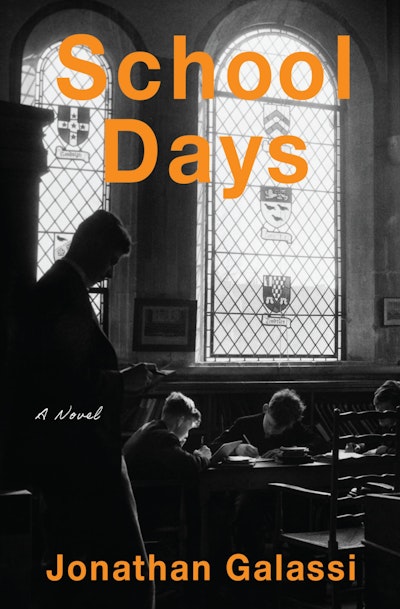- Published: 26 September 2023
- ISBN: 9781635424126
- Imprint: Other Press
- Format: Paperback
- Pages: 224
- RRP: $38.00
School Days
A Novel
- Published: 26 September 2023
- ISBN: 9781635424126
- Imprint: Other Press
- Format: Paperback
- Pages: 224
- RRP: $38.00
“The book neatly encompasses much of modern gay history—pre-Stonewall secrecy, AIDS, today’s climate of openness…it also becomes a sensitive evocation of late middle age.” —The New Yorker “Galassi’s talent for crisp and moving storytelling is again on display…This heartful novel packs a punch.” —Publishers Weekly “Fascinating…[a] beautifully conceived and written novel.” —Booklist (starred review) “Galassi’s understated style and economical prose are well suited to this elegiac story…A thoughtful exploration of the lingering effects of repressed sexual identity.” —Kirkus Reviews “Sink your teeth into something salacious and meaningful with this novel.” —Nylon “Engulfing…[Galassi] crafts supple sentences with atavistic touches…[a] big-impact little novel.” —Shelf Awareness “In School Days, Jonathan Galassi gives us a novel of change, loss, and liberation. It’s a look at a private school in the 1960s, a world of privilege and erudition on the cusp of upheaval. But it’s also the story of a man finding his hard-won truth, a gift that enables him to clearly see his boyhood friends—and himself—for the first time. Brilliant, wise, and wistful.” —Jennifer Finney Boylan, author of She’s Not There and Good Boy “Nostalgia, desire, and the treachery of long-held secrets collide in this absorbing psychological mystery set amid the casual cruelties of privilege and youth. Though no one is murdered, heroes are toppled, illusions shattered, and Galassi’s protagonist unearths not just a scandal but painful truths all his own. This is the kind of satisfying story whose final revelations send you rushing right back to the start.” —Julia Glass, National Book Award–winning author of Three Junes and Vigil Harbor Praise for Muse: “A bravura first novel…Compelling…Galassi propels his readers forward on a thought-provoking, often hilarious, bittersweet ride.” —Los Angeles Review of Books “Entertaining…Muse is many things: a satire of New York’s social world, a portrait of publishing that is both love song and takedown, and an intriguing mystery.” —New York Times Book Review “A testament to the purity of the written word, and the turmoil that can be required to get it on paper.” —The New Yorker

